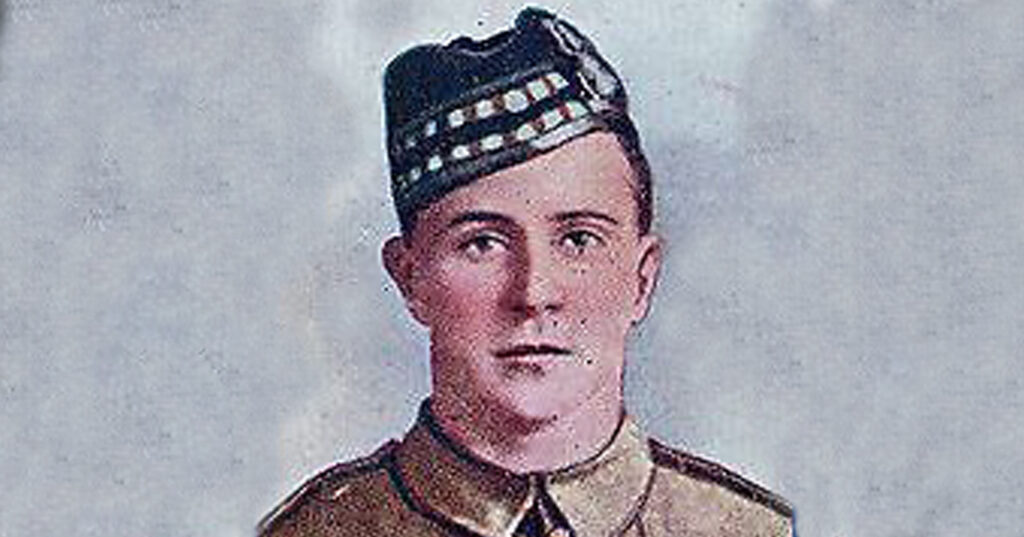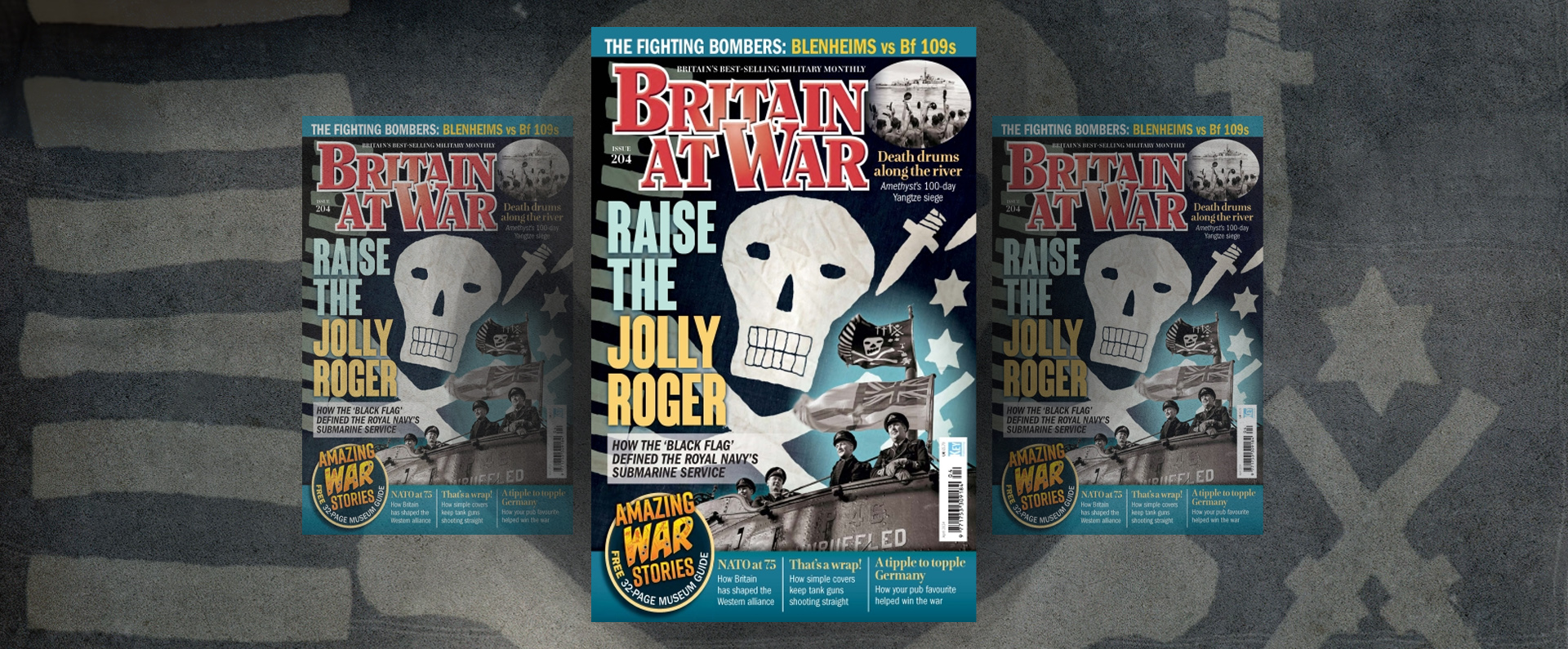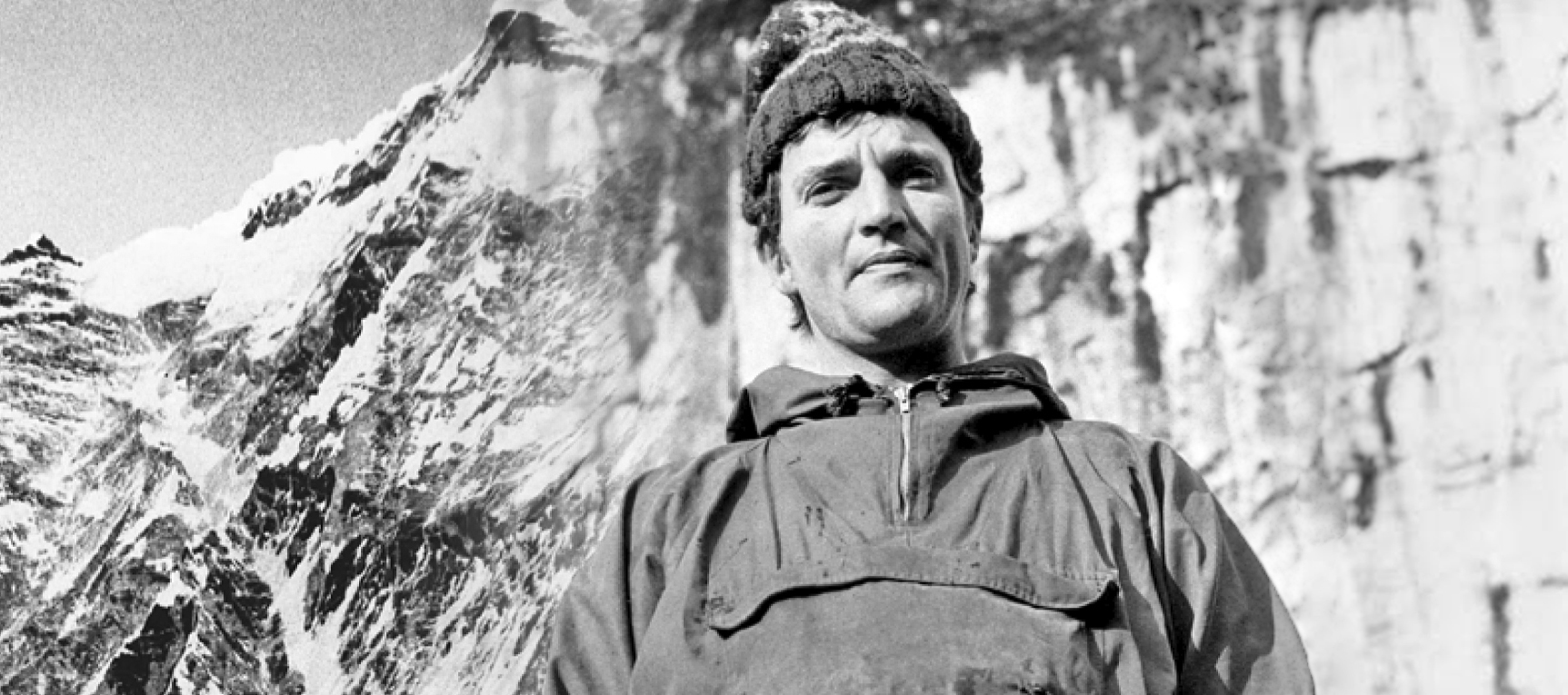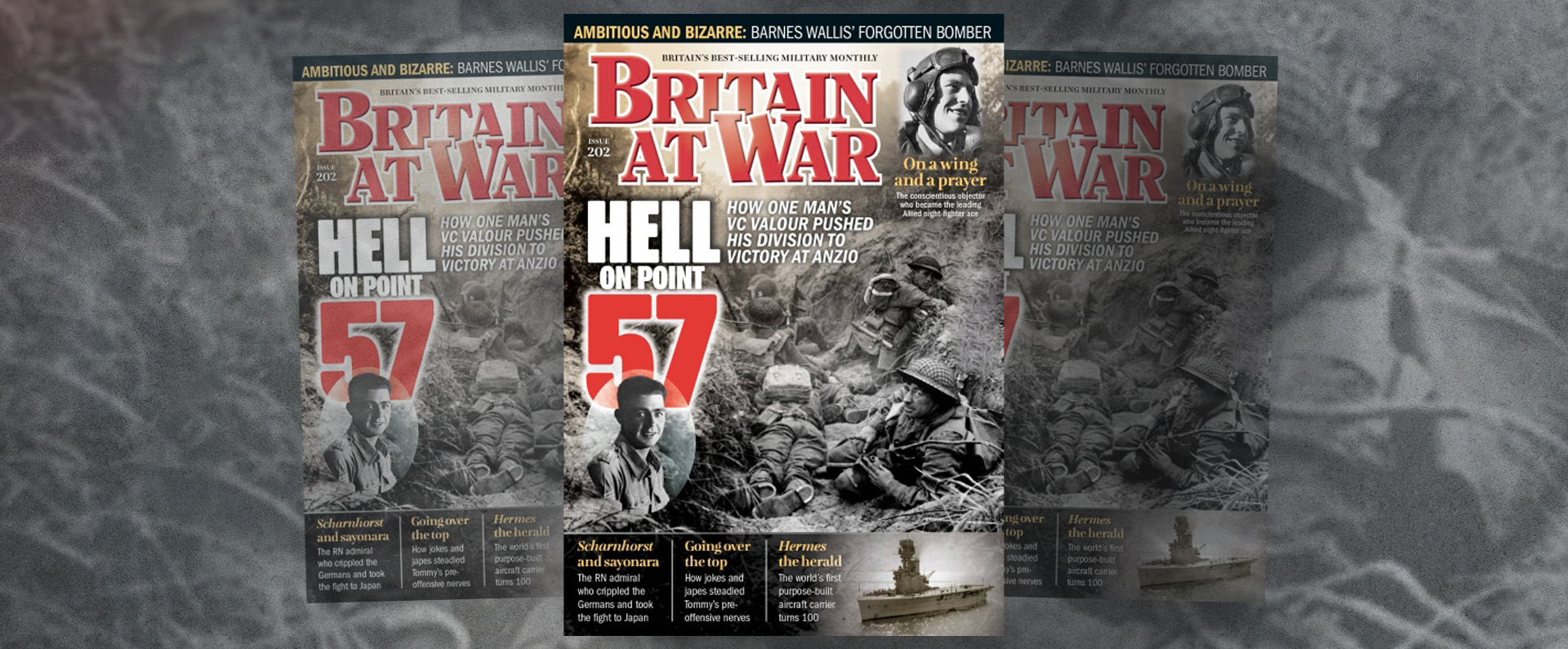
Published in Britain at War in January 2017.
Private David Ross Lauder VC: sacrifice
David Ross Lauder was born in Easter Glentore, near Airdrie, Scotland, on 21 January 1894. He was the son of Angus Lauder, a tailor, and his wife Marion. Little is known of his early life but, after leaving school, he worked as a carter and he trained with the 4th Battalion, The Royal Scots Fusiliers (Territorial Force). In February 1913, he married Dorina McGuigan, a coalminer’s daughter.
Lauder was mobilised in August 1914, aged 20, and after training with the 52nd Division as a member of the 1/4th Battalion, The Royal Scots Fusiliers, he and his comrades were dispatched for Gallipoli, Turkey. Even before they set foot on the frontline in the early summer of 1916, his battalion was involved in two major incidents.
As he and his comrades were on their way to their embarkation point, a troop train carrying members of the 52nd Division crashed outside the Quintinshill signal box near Gretna Green in Dumfriesshire. The five-train accident on 22 May 1915 claimed the lives of some 226 men and injured a further 246 men. To this day, the Quintinshill rail disaster remains the worst rail crash in British history.
Next came an accident in which the SS Reindeer, sailing from Mudros to Helles and transporting Lauder and his comrades, collided with SS Immingham. Immingham, which was returning without troops, sank immediately but Reindeer limped back to Mudros. The Royal Scots did not, fortunately, lose any men in either incident but it was June 1915 before they finally arrived in Gallipoli.
On 12 July 1915, the 1/4th Royal Scots Fusiliers were involved in an action at Achi Baba Nullah when they lost all but one of their officers and half their rank and file, killed or wounded. An ill-fated charge on three lines of Turkish trenches, the incident cost the lives of several of Lauder’s friends and left a deep impression on him.
However, it was for bravery at The Vineyard, south-west of Krithia, Gallipoli, just a month later, that Lauder, then aged 21, was awarded the VC. In a diversionary attack to coincide with the Allied landing at Suvla Bay on the night of 6 August, the 88th Brigade had captured a small vineyard, which became known simply as The Vineyard.
On the night of 12 August, the Turks had launched a heavy bombardment of the British forces, causing many casualties, in an attempt to recapture the lost ground. The 9th Manchesters, who had made substantial gains over the previous four days, had been forced to give up land that they had previously taken.
By the morning of 13 August, the fighting was still fierce, with both sides moving forward, then being forced back again. At around 11.30am, the 1/4th Royal Scots Fusiliers started replacing the exhausted Manchesters.
However, despite more casualties, the Turks were eventually driven out and half of The Vineyard was re-secured. By late afternoon on the 13th, the battle was drawing to a close although Lauder and his comrades continued throwing large numbers of bombs to prevent the Turks from advancing.
To amuse themselves, the men were keeping a record of just how many bombs they had each thrown over the lip of the sap. Lauder’s own tally was 200-plus when disaster struck.
Lauder’s citation for his VC takes up the story: “For most conspicuous bravery when with a bombing party retaking a sap. Pte. Lauder threw a bomb, which failed to clear the parapet and fell amongst the bombing party. There was no time to smother the bomb, and Pte. Lauder at once put his foot on it, thereby localising the explosion. His foot was blown off, but the remainder of the party through this act of sacrifice escaped unhurt.”
Lauder’s bravery had prevented nine comrades being killed or badly wounded. He later recalled: ‘I threw a bomb that fell short. I saw it slip down the parapet and roll towards the bombing party.
“A three second fuse does not allow you very long for thinking. I recognised the fault as mine and the only course that seemed open to me was to minimise the explosion as much as possible. So I put my right foot on it. The explosion was terrific and the concussion was awful. My foot was clean blown away, but, thank goodness, my comrades were saved.”
Lauder remained conscious after the accident and was carried back to his battalion’s fire trench where he received medical attention. He was later transferred to Malta for further medical treatment before returning to the UK. He was eventually fitted with an artificial lower leg – from just below the knee – and he learned to walk with it.
His VC was announced on 13 January 1917 and, in the same month, he was discharged from the Army and went to work in a munitions factory in Parkhead, Glasgow. He and his wife eventually had three sons and three daughters.
Lauder received his award from King George V at an investiture at Buckingham Palace on 3 March 1917 – he was Scotland’s only VC from the Gallipoli Campaign.
After the Great War ended in November 1918, Lauder worked for the General Post Office (GPO). After getting divorced from his first wife, he re-married and had five further children.
In April 1937, Lauder was the passenger in a tramcar when it jumped the rails and collided with a bus in Hope Street, Glasgow. Lauder was cut and dazed in the crash but he nevertheless helped those more seriously injured to get out of the wreckage before calmly reporting for work.
During the Second World War, Lauder combined his night work as a switchboard operator with being a part-time air-raid warden by day. In 1960, Lauder retired from his GP) job but he continued to work part time as a night-watchman.
Lauder died at his home in Cranhill, Glasgow, on 4 June 1972, aged 78. I purchased his medal group last year and a write-up on his life and bravery features in my new book Victoria Cross Heroes: Volume II.
Download a PDF of the original Britain at War article
For more information, visit:
LordAshcroftOnBravery.com


